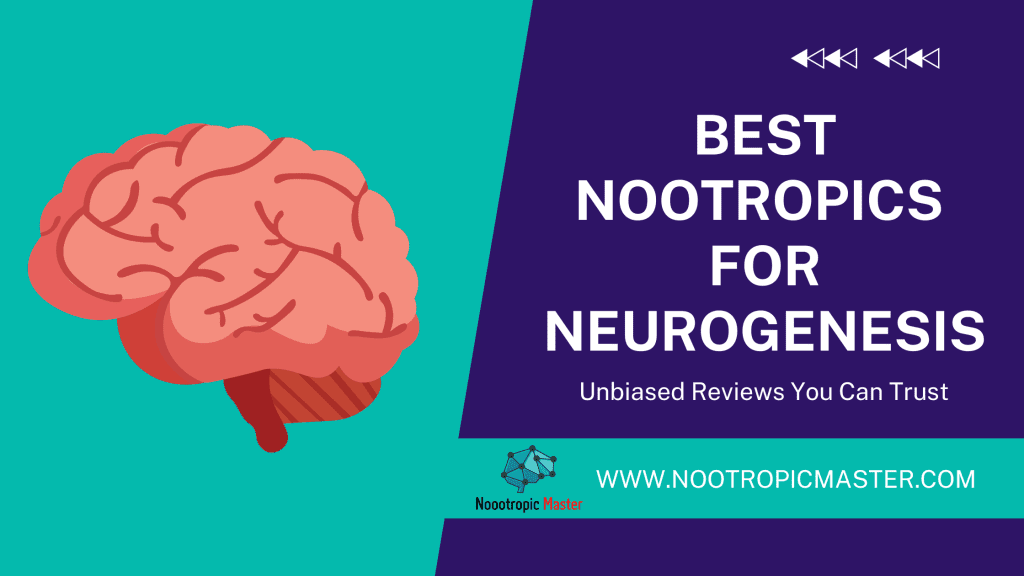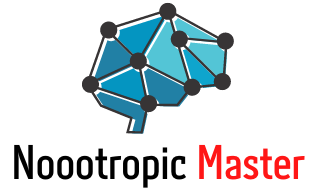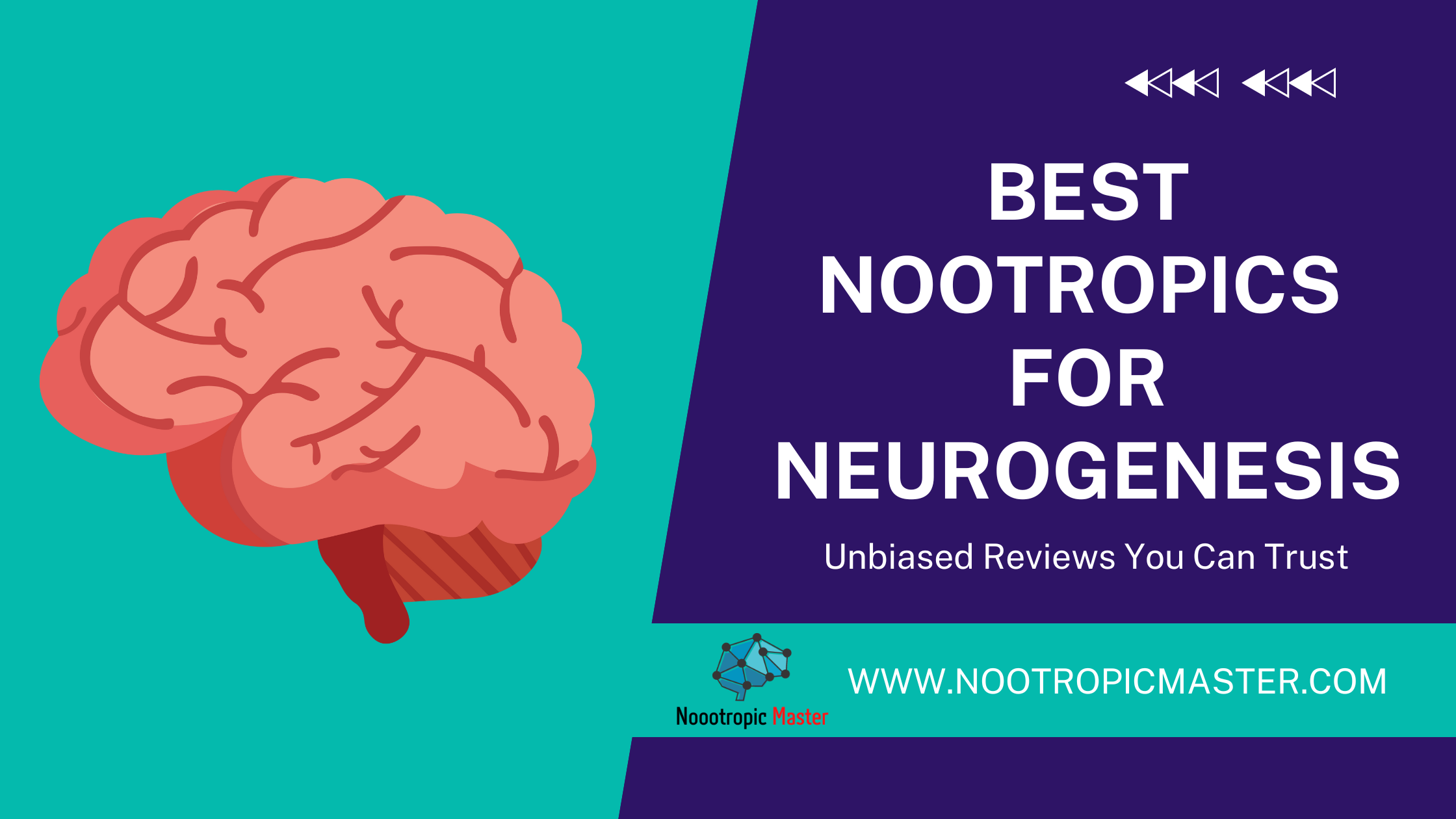
In the ever-evolving quest for self-improvement, many individuals are turning to natural nootropics and nootropic supplements to enhance their brain power and optimize cognitive function. These remarkable compounds have piqued the interest of researchers and everyday people alike.
They offer promising solutions to improve brain performance and increase focus, memory, and mental agility.
With so many options available, navigating the world of nootropics can be challenging. This comprehensive guide will delve into the best nootropics for neurogenesis, revealing how these natural brain boosters can unlock your full cognitive potential and elevate your brain power.
Role of Neurogenesis in Cognitive Function
Neurogenesis, the process of creating new neurons, is critical in maintaining and improving cognitive function.
This fascinating process occurs throughout our lives, primarily in the hippocampus, a brain region responsible for learning and memory. Understanding how neurogenesis affects our cognitive abilities is essential, as it can help us appreciate the value of promoting this process for better mental health and overall well-being.
Cognitive function encompasses various mental abilities, such as attention, memory, problem-solving, decision-making, and learning. A healthy brain continually forms new neural connections, which allow us to retain information, adapt to new situations, and effectively process complex tasks. These new neurons enhance our cognitive resilience and protect us from the age-related decline in brain function.
One of the most crucial aspects of neurogenesis is its impact on memory. As mentioned earlier, the hippocampus is our brain’s memory powerhouse. It helps us form, store, and retrieve memories, allowing us to learn from our experiences and navigate our world. When neurogenesis is promoted, the hippocampus can more effectively encode new information, making it easier for us to remember and access vital knowledge.
Another vital cognitive function influenced by neurogenesis is our ability to adapt and learn. As we encounter new situations and challenges, our brain must adjust its neural connections to accommodate the novel information. This adaptation is made possible through the continuous formation of new neurons. A brain with robust neurogenesis can more effectively rewire itself, making it more agile and responsive to change.
Neurogenesis also plays a significant role in our emotional health. The creation of new neurons has been linked to improved mood and reduced symptoms of anxiety and depression.
This is partly because the hippocampus regulates our emotions and stress response. Promoting neurogenesis can potentially enhance our emotional resilience and overall well-being.
Neurogenesis is a vital process that significantly influences cognitive function.
It helps our brain remain agile, promotes better memory retention, and supports emotional health. Understanding the importance of neurogenesis encourages us to seek ways to promote this process, ultimately leading to improved cognitive abilities and mental well-being.
Best Nootropics that Promote Neurogenesis: A Comprehensive List
Nootropics, also known as “smart drugs” or cognitive enhancers, can improve mental performance. Among their various benefits, some nootropics can also promote neurogenesis, forming new neurons in the brain.
Here’s a comprehensive list of nootropics known for their neurogenic properties, which can help support cognitive function and overall brain health.
First up is the family of racetams, which includes Piracetam, Aniracetam, and others. These compounds boost memory, learning, and focus by modulating neurotransmitters in the brain. They have also been shown to stimulate the growth of new neurons.
Another powerful neurogenic nootropic is Lion’s Mane Mushroom, an edible fungus with a unique ability to stimulate the production of nerve growth factor (NGF). This protein is crucial for neurons’ growth, maintenance, and survival. By increasing NGF levels, Lion’s Mane can encourage neurogenesis and support cognitive function.
Bacopa Monnieri, an ancient Ayurvedic herb, is renowned for improving memory and cognitive performance. It has also been found to promote neurogenesis by increasing the expression of brain-derived neurotrophic factor (BDNF), a protein that supports the growth and survival of neurons.
Choline-enhancing nootropics, such as Alpha-GPC and Citicoline, can also contribute to neurogenesis. Choline is an essential nutrient for synthesizing acetylcholine, a neurotransmitter involved in learning and memory. By increasing choline levels in the brain, these nootropics can support the formation of new neurons.
Omega-3 fatty acids, particularly DHA and EPA, are known for their positive effects on brain health. These essential fats can promote neurogenesis by supporting the growth and development of neuronal cells. Consuming Omega-3-rich foods or supplements can be an effective way to boost neurogenesis and cognitive function.
Nootropics can support cognitive function and brain health. These include racetams, Lion’s Mane Mushroom, Bacopa Monnieri, choline-enhancing nootropics, and Omega-3 fatty acids. Incorporating these substances into your daily routine can improve your cognitive performance and overall well-being.
Effects of Racetams on Neurogenesis: Piracetam, Aniracetam, and Others
Racetams are a family of synthetic nootropics known for their cognitive-enhancing properties. They include popular compounds like Piracetam, Aniracetam, and others. These substances have been extensively studied for their positive effects on brain function, including their potential to promote neurogenesis and the growth of new neurons. Let’s delve deeper into how racetams influence neurogenesis and their impact on cognitive function.
Piracetam, the first racetam to be discovered, is known for improving memory, learning, and focus. It works by modulating the levels of neurotransmitters like acetylcholine and glutamate, which play crucial roles in cognitive processes. Researchers have found that Piracetam can also stimulate the growth of new neurons in the brain, which may contribute to its cognitive-enhancing effects.
Aniracetam, another popular racetam, is known for its anxiolytic and mood-boosting properties and cognitive benefits. Like Piracetam, Aniracetam has been found to promote neurogenesis by influencing neurotransmitter levels and synaptic plasticity. This compound may enhance memory and reduce anxiety, thanks to its dual action on cognitive function and emotional well-being.
Other racetams, such as Oxiracetam and Pramiracetam, have also demonstrated neurogenic properties. Oxiracetam is known for enhancing focus, memory, and logical thinking, while Pramiracetam is often used for its long-lasting cognitive benefits. These racetams have been shown to help neurogenesis, further supporting their efficacy as cognitive enhancers.
It’s worth noting that while racetams can be effective in promoting neurogenesis, their effects may vary among individuals. Age, genetics, and lifestyle can influence how one responds to racetams. It’s essential to consult a healthcare professional before starting any racetam regimen to ensure its safety and effectiveness for your specific needs.
Racetams, including Piracetam, Aniracetam, and others, have shown promising effects on neurogenesis, which may contribute to their cognitive-enhancing properties. By supporting the growth of new neurons, racetams can potentially improve memory, learning, focus, and overall brain function. However, it’s essential to consult with a healthcare professional to determine the most suitable racetam and dosage for your unique needs.
Lion’s Mane Mushroom and its Neurogenic Potential

Lion’s Mane Mushroom, a unique edible fungus with a fuzzy, white appearance, has garnered significant attention recently for its neurogenic potential. This intriguing mushroom has been used for centuries in traditional Chinese medicine for its various health benefits. It’s increasingly popular among those looking to improve their cognitive function and brain health.
The secret to Lion’s Mane’s neurogenic potential lies in its ability to stimulate the production of nerve growth factor (NGF). NGF is a protein crucial in neurons’ growth, maintenance, and survival. By increasing NGF levels in the brain, Lion’s Mane can encourage the formation of new neurons and support the health of existing ones.
This neurogenic effect of Lion’s Mane can have several positive impacts on cognitive function. For instance, the mushroom has been shown to improve memory and learning abilities. Lion’s Mane can enhance the brain’s capacity to encode and store information by promoting the growth of new neurons in the hippocampus. This can lead to better retention of knowledge and an improved ability to learn new skills.
Lion’s Mane Mushroom is also linked to better mental clarity and focus. The increased production of NGF can help optimize the function of neural networks, making it easier to concentrate on tasks and process information more efficiently. This can particularly benefit those experiencing brain fog or struggling with attention-related issues.
In addition to its neurogenic potential, Lion’s Mane has been found to have neuroprotective properties. It can help protect the brain from damage caused by inflammation, oxidative stress, and other factors contributing to age-related cognitive decline.
In summary, Lion’s Mane Mushroom offers impressive neurogenic potential, making it a valuable addition to the list of nootropics that promote neurogenesis. By stimulating the production of NGF, Lion’s Mane can encourage the formation of new neurons, enhance cognitive function, and protect the brain from age-related decline. Incorporating this unique mushroom into your daily routine could be a natural and effective way to support your brain health and cognitive performance.
Influence of Choline-Enhancing Nootropics on Neural Growth
Choline-enhancing nootropics have gained considerable popularity for their potential to boost cognitive function and support brain health. Choline is an essential nutrient that plays a vital role in neural growth and maintenance. It is a building block for acetylcholine, a neurotransmitter crucial for memory, learning, and other cognitive processes. By increasing choline levels in the brain, these nootropics can influence neural growth and help optimize cognitive function.
Two popular choline-enhancing nootropics are Alpha-GPC and Citicoline. Both compounds are known for increasing choline availability in the brain. By doing so, they can support the synthesis of acetylcholine, which is vital for neural communication and overall cognitive performance.
The influence of choline-enhancing nootropics on neural growth can be seen in several ways. First, these compounds can promote the formation of new neurons by providing the necessary building blocks for cell membranes. Neurons rely on healthy membranes for optimal communication and function, so the increased availability of choline can support their growth and development.
Second, choline-enhancing nootropics can contribute to the maintenance and repair of existing neurons. The brain constantly adapts and reorganizes its neural connections, which requires ongoing maintenance and repair. By supplying the brain with more choline, these nootropics can help ensure that neurons remain healthy and functioning properly.
Finally, choline-enhancing nootropics can support neuroplasticity, the brain’s ability to form new connections and adapt to new information. Acetylcholine plays a critical role in this process, as it helps facilitate the communication between neurons. By increasing the levels of acetylcholine in the brain, choline-enhancing nootropics can help promote a more adaptable and resilient neural network.
In conclusion, choline-enhancing nootropics, such as Alpha-GPC and Citicoline, can significantly influence neural growth by increasing the availability of choline in the brain. This can lead to the formation of new neurons, the maintenance and repair of existing cells, and improved neuroplasticity. Incorporating these nootropics into your daily routine may offer a promising strategy to support cognitive function and overall brain health.
Bacopa Monnieri and its Effects on Brain Cell Proliferation

Bacopa Monnieri, an ancient Ayurvedic herb, has long been valued for supporting memory, learning, and overall cognitive function. This versatile plant has also been found to impact brain cell proliferation, which creates new neurons significantly. Let’s explore how Bacopa Monnieri can influence brain cell growth and its potential benefits for cognitive health.
One of the critical components of Bacopa Monnieri’s effect on brain cell proliferation is its ability to increase the expression of brain-derived neurotrophic factor (BDNF).
BDNF is a protein critical to neurons’ growth, development, and survival.
By boosting the levels of BDNF in the brain, Bacopa Monnieri can encourage the formation of new neurons and support the health of existing ones.
This increase in brain cell proliferation can positively affect cognitive function. For example, the growth of new neurons in the hippocampus can lead to better memory retention and learning abilities. With more neurons to store and process information, the brain becomes more efficient at encoding new experiences and recalling previously learned knowledge.
Bacopa Monnieri has also been found to have antioxidant and anti-inflammatory properties, which can further support brain cell growth. These properties help protect neurons from damage caused by oxidative stress and inflammation, factors that can hinder the brain’s ability to create new cells. By reducing this damage, Bacopa Monnieri can promote a healthier environment for brain cell proliferation.
In addition to its effects on brain cell growth, Bacopa Monnieri has been shown to enhance other aspects of cognitive function. For instance, it can help reduce anxiety and improve mood, making it a valuable nootropic for those seeking to support their cognitive and emotional well-being.
Bacopa Monnieri can profoundly impact brain cell proliferation by increasing BDNF levels and providing antioxidant and anti-inflammatory support. This can lead to improved memory, learning, and overall cognitive function. Incorporating Bacopa Monnieri into your daily routine may be a natural and effective way to enhance your brain health and mental performance.
The Connection between Omega-3 Fatty Acids and Neurogenesis
Omega-3 fatty acids, particularly DHA and EPA, are essential fats known for their numerous health benefits, including their positive effects on brain health. These crucial nutrients have been linked to neurogenesis, forming new neurons in the brain. Let’s examine the connection between Omega-3 fatty acids and neurogenesis and how it can benefit cognitive function.
DHA, or docosahexaenoic acid, is one of the most abundant fatty acids in the brain and plays a vital role in maintaining the structure and function of neuronal cells. It has been found that DHA can support the growth and development of new neurons.
This occurs through several mechanisms, including regulating gene expression, modulation of synaptic plasticity, and promoting neuronal survival.
EPA, or eicosapentaenoic acid, is another essential Omega-3 fatty acid shown to contribute to neurogenesis. It has potent anti-inflammatory properties, which can help protect the brain from inflammation-induced damage that may hinder the growth of new neurons. By reducing inflammation, EPA can create a more favorable environment for neurogenesis.
Incorporating Omega-3-rich foods or supplements into your daily routine can offer several cognitive benefits, thanks to their neurogenic properties. For instance, the increased production of new neurons can lead to improved memory, learning, and overall cognitive function. Additionally, Omega-3 fatty acids have been associated with reduced symptoms of depression, anxiety, and other mood disorders, suggesting that they can support emotional well-being alongside cognitive health.
Moreover, Omega-3 fatty acids can have a protective effect on the brain as we age.
Promoting neurogenesis and reducing inflammation may help prevent age-related cognitive decline and maintain optimal brain function.
Omega-3 fatty acids, particularly DHA and EPA, are connected to neurogenesis, offering valuable cognitive function and brain health support.
Nootropic Stacks for Enhancing Neurogenesis: Synergistic Effects
Combining different cognitive-enhancing supplements, Nootropic stacks have become increasingly popular among individuals looking to optimize their brain health and performance. One of the primary goals of these stacks is to enhance neurogenesis, the process of creating new neurons. By carefully selecting nootropics that work together synergistically, it’s possible to achieve greater benefits than using each supplement individually.
A well-designed nootropic stack for enhancing neurogenesis should include components that target different aspects of neural growth, such as stimulating the production of growth factors, providing essential building blocks for new neurons, and protecting existing cells from damage. These stacks can offer comprehensive support for cognitive function by addressing multiple facets of neurogenesis.
One popular stack combines Lion’s Mane Mushroom, Bacopa Monnieri, and Omega-3 fatty acids. Lion’s Mane is known for its ability to boost nerve growth factor (NGF) levels, which supports neurons’ growth and survival. Bacopa Monnieri enhances brain cell proliferation by increasing brain-derived neurotrophic factor (BDNF) expression. Omega-3 fatty acids, particularly DHA and EPA, provide essential building blocks for new neurons and protect the brain from inflammation-induced damage. Together, these three components work synergistically to create a well-rounded neurogenic stack.
Another effective stack for neurogenesis might include a choline-enhancing nootropic, such as Alpha-GPC or Citicoline, combined with a racetam like Piracetam or Aniracetam. Choline-enhancing nootropics increase the availability of choline in the brain, which is crucial for the synthesis of acetylcholine and the growth of new neurons. Racetams, on the other hand, can stimulate neurogenesis by modulating neurotransmitter levels and synaptic plasticity. Working together, these two types of nootropics can boost cognitive function and neural growth.
Nootropic stacks focusing on enhancing neurogenesis can offer synergistic effects, providing comprehensive support for cognitive function and brain health. By combining supplements that target different aspects of neurogenesis, these stacks can potentially yield greater benefits than using each nootropic individually. As always, it’s important to consult with a healthcare professional before beginning any new supplement regimen to ensure its safety and effectiveness for your unique needs.
Factors to Consider When Choosing Nootropics for Neurogenesis
When selecting nootropics, it’s essential to consider various factors to ensure you make the best choices for your unique needs and goals. With numerous options available, finding the right supplements can be a bit overwhelming. Here are some key factors to remember as you navigate the world of nootropics for neurogenesis.
-
Personal Goals: Start by identifying your specific cognitive goals. Are you looking to improve memory, enhance focus, or maintain overall brain health? By pinpointing your objectives, you can narrow down the nootropics that will be most effective in helping you achieve those goals.
-
Ingredients: Do thorough research on the ingredients and their potential effects on neurogenesis. Look for well-established compounds like Lion’s Mane Mushroom, Bacopa Monnieri, Omega-3 fatty acids, and choline-enhancing nootropics. Be sure to choose products with high-quality ingredients and proper dosages for optimal results.
-
Synergistic Effects: When combining nootropics, it’s crucial to understand how they work together. Some supplements have synergistic effects, which means they can enhance each other’s benefits when taken together. For example, pairing a choline-enhancing nootropic with a racetam can boost cognitive function and neural growth. On the other hand, some nootropics may have negative interactions, so it’s essential to research potential combinations before starting a new regimen.
-
Safety and Side Effects: Always consider the safety profile and potential side effects of the nootropics you’re interested in. While most cognitive-enhancing supplements are generally safe when taken in recommended dosages, it’s crucial to be aware of any risks and contraindications. Consult with a healthcare professional if you have any concerns or pre-existing conditions.
-
Personal Tolerance: Everyone’s body and brain chemistry is unique, and individual responses to nootropics can vary. Start with the recommended dosages and gradually adjust if needed. It’s also helpful to track your progress and experiences to fine-tune your nootropic regimen to suit your needs best.
In summary, when choosing nootropics for neurogenesis, consider your goals, ingredients, synergistic effects, safety, and personal tolerance. You can select the most appropriate supplements to support your cognitive function and brain health by carefully evaluating these factors. Remember to consult a healthcare professional before starting any new supplement regimen to ensure its safety and effectiveness for your unique needs.
Potential Side Effects and Risks Associated with Neurogenic Nootropics
While neurogenic nootropics can offer many cognitive benefits, it’s essential to be aware of potential side effects and risks associated with their use. Most nootropics are generally considered safe when taken in recommended dosages, but individual reactions can vary. Understanding possible side effects and taking necessary precautions to minimize risks is crucial.
-
Mild Side Effects: Some nootropics may cause mild side effects, especially when you first start taking them or are sensitive to the ingredients. These side effects can include headaches, digestive issues, or sleep disturbances. If you experience these symptoms, consider adjusting your dosage or discussing your concerns with a healthcare professional.
-
Allergic Reactions: Although rare, some individuals may have allergic reactions to specific ingredients in neurogenic nootropics. Signs of an allergic reaction can include rashes, itching, swelling, or difficulty breathing. If you suspect an allergic reaction, discontinue the supplement and consult a healthcare professional.
-
Interactions with Medications: Neurogenic nootropics may interact with certain medications, altering their effectiveness or causing adverse effects. For instance, some nootropics may affect blood clotting, which could be problematic for individuals taking blood-thinning medications. Always consult a healthcare professional before starting any new supplement if you’re taking prescription medications.
-
Overstimulation: Some neurogenic nootropics may cause overstimulation, leading to symptoms such as increased heart rate, restlessness, or anxiety. Start with a low dosage to avoid overstimulation and gradually increase as needed. Also, avoid stimulating nootropics close to bedtime, as they may interfere with sleep.
-
Long-term Effects: The long-term effects of many neurogenic nootropics are not well understood, as most research has focused on short-term usage. It’s essential to approach long-term use cautiously and consult a healthcare professional for guidance.
While neurogenic nootropics can provide cognitive benefits, being aware of potential side effects and risks is essential. Always start with the recommended dosage and consult a healthcare professional if you have concerns or experience adverse effects. By taking the necessary precautions, you can enjoy the benefits of nootropics while minimizing potential risks.
Does neurogenesis make you smarter?
How to increase neurogenesis?
Exercise: Regular physical activity, particularly aerobic exercise, has been shown to stimulate neurogenesis. Aim for at least 150 minutes of moderate or 75 minutes of vigorous-intensity exercise per week.
Diet: A balanced diet rich in antioxidants, omega-3 fatty acids, and other nutrients can promote brain health and neurogenesis. Consider incorporating fatty fish, nuts, seeds, fruits, vegetables, and whole grains into your meals.
Sleep: Getting enough quality sleep is essential for brain health and neurogenesis. Aim for 7-9 hours of sleep per night and maintain a consistent sleep schedule.
Stress management: Chronic stress can negatively impact neurogenesis. Engage in stress-reducing activities like meditation, yoga, deep breathing, or time in nature to help lower stress levels.
Cognitive stimulation: Engaging in mentally stimulating activities like reading, solving puzzles, learning new skills, or playing brain games can support neurogenesis and overall brain health.
Social interaction: Maintaining an active social life and building strong relationships can improve brain health and neurogenesis.
Avoid alcohol and drugs: Excessive alcohol consumption and drug use can impair neurogenesis. Limit alcohol intake and avoid using illicit drugs to promote brain health.
Intermittent fasting: Some studies suggest that intermittent fasting, which involves voluntary abstinence from food, may help stimulate neurogenesis.
Antidepressants: Certain antidepressants, such as selective serotonin reuptake inhibitors (SSRIs), have been shown to promote neurogenesis. These medications should only be used under the supervision of a healthcare professional and when indicated for specific mental health conditions.
Enriched environments: Surrounding yourself with an enriched environment, including exposure to new experiences, learning opportunities, and physical activities, can stimulate neurogenesis.
By implementing these strategies, you can create an environment that supports neurogenesis and overall brain health.

